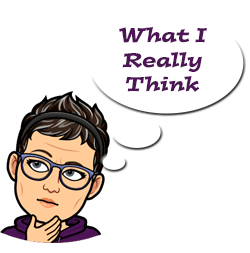If you don’t already know this about me, you should: I hate reading books where bad things happen to characters I like. I’m not afraid to admit that. Books are an escape from me, and if the author is good, I become attached to the characters and if the author does mean things to them, I get pissed. Who wants to read that as an escape?
I also do not like suspense. I mean, in small doses, in a book I can finish in a day (e.g., a Janet Evonovich or Harlan Coban), I can deal. Yet with longer, more involved stories, I’ve been known to peak ahead.
Which leads me to two points, 1) Why I have so many books listed on my Shelfari – Books I’m Reading now shelf. You see, if I know bad things are going to happen to characters I like, I stop reading, hoping to return at a later date when I’m mentally stable enough to handle the blow (though this doesn’t account for the book, This is Where I Leave You, which I just didn’t like from the start and can’t decide if I should remove from the list). 2) Why it took me so long to finish reading 1000 White Women, the Journals of May Dodd.
Spoiler Alert – skip next paragraph if you don’t want a hint at the ending
I was supposed to read this book for Book Club earlier in the year but true to form, I peaked ahead to the ending and when I realized that things didn’t go so well for the main character, May Dodd, I stopped reading at 75% and didn’t return.
Until this week when I finished.
Spoiler Alert – you may resume reading below
1000 White Women (and if you can get past the title and a husband who quotes the movie Animal House, “Where the white women at?” every time you say it, that would be a good thing) takes a brief historical moment (the asking by a Cheyenne chief for 1000 white women to help assimilate his tribe into white culture) and expands upon it creating what is supposed to be historical fiction regarding a secret government program to do just that. The story, other than the beginning and ending, is the reading the journals of one of the women who participated in that “program.”
If you can get past that it’s not true historical fiction, then I think you might enjoy the story, if for nothing else, to at least learn a bit about Cheyenne culture, which I’m assuming has been researched and is true albeit without the white women participating and to get a feel for what the west was like at that time. I know I did.

